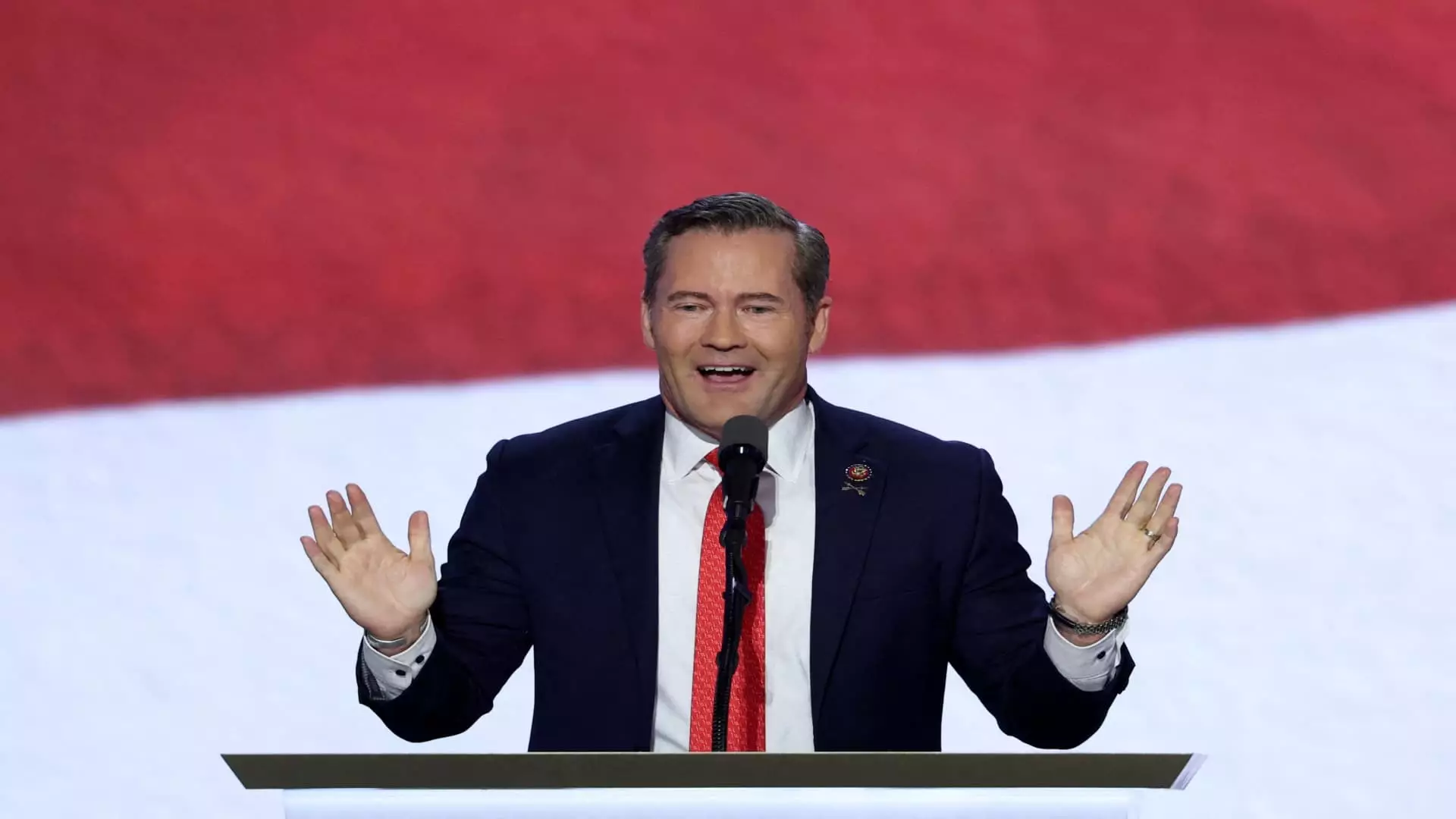In a significant move indicative of his administration’s foreign policy approach, President-Elect Donald Trump has chosen Rep. Mike Waltz (R-Fla.) as his national security adviser. This decision, disclosed by various sources, comes with substantial implications for U.S. security policy, especially regarding antagonistic relations with countries like China and Russia. A veteran of the U.S. Army, Waltz’s military experience, particularly in challenging environments such as Afghanistan and the Middle East, positions him uniquely to navigate complex global security issues.
Mike Waltz’s credentials are impressive. As a Green Beret veteran, he brings not just military experience but also a nuanced understanding of counter-terrorism and foreign engagements. His deployment in key regions underscores a level of expertise that few politicians possess. Since entering Congress in 2019, Waltz has engaged directly with pressing national security matters as a member of critical committees including Armed Services, Foreign Affairs, and Intelligence. This background may suggest a shift towards a militarized approach in resolving international disputes under Trump’s watch.
Waltz has a reputation as a hawkish figure, especially when it comes to China. His involvement in the House’s China Task Force highlights a growing concern among U.S. lawmakers regarding the challenges posed by China’s rise as a global power. He has been vocal about the necessity for strategic preparedness, arguing that the United States is not adequately equipped to handle potential conflicts in the Asia-Pacific region. This perspective reflects a broader bipartisan concern about China’s influence, setting the stage for a more confrontational stance in U.S.-China relations.
Furthermore, Waltz has expressed a skeptical viewpoint regarding U.S. support for Ukraine amid its conflict with Russia. He has argued that the U.S. holds significant leverage over Russia and should push for a diplomatic resolution led by negotiations rather than military involvement. This stance has drawn criticism from those who believe that engaging robustly in Ukraine is essential to deter Russian aggression and support an ally under threat. Such contradictory views on foreign aid expose deeper ideological divides within the Republican Party regarding U.S. intervention in international crises.
The appointment of Mike Waltz signifies a pivotal moment in Trump’s national security strategy. Unlike his predecessors, Waltz’s viewpoints suggest a potential departure from diplomatic engagement towards a more assertive military posture. The choice does not require Senate confirmation, enabling Trump to instate his vision swiftly. Alongside figures like Rep. Elise Stefanik, Waltz’s selection illustrates Trump’s inclination to surround himself with individuals advocating for a tougher, more aggressive foreign policy, potentially redefining how the U.S. engages on the global stage. As the implications of this decision unfold, the administration’s approach to national security will undoubtedly generate discussion and scrutiny, particularly regarding its impact on international relations and U.S. global standing.

Leave a Reply